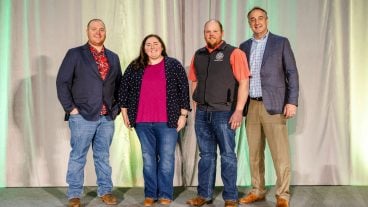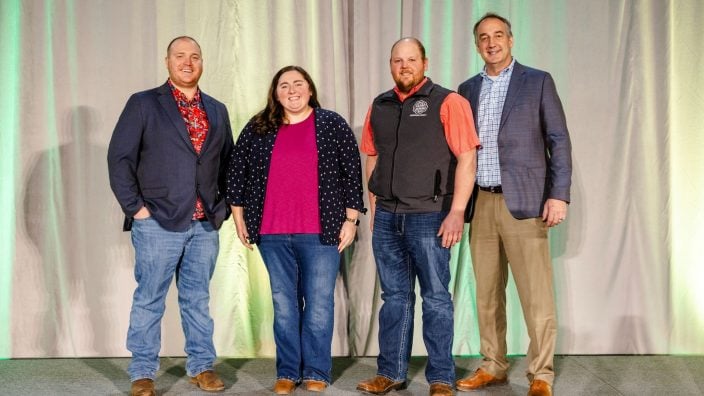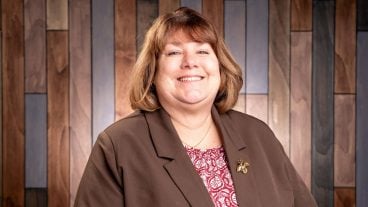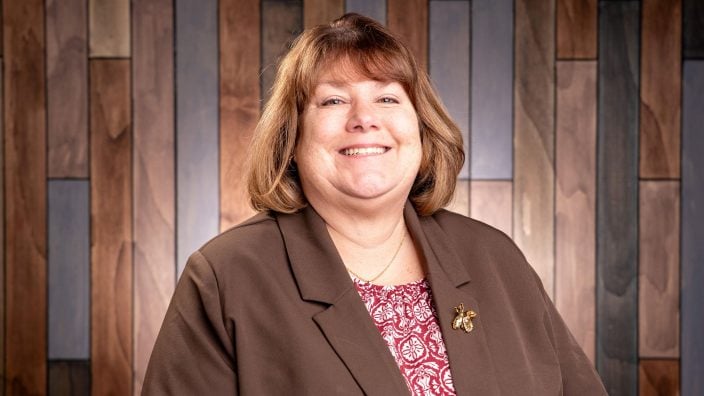Applications for Ohio Farm Bureau Health Plans now available
Members have three ways to apply: contacting a certified agent, calling 833-468-4280 or visiting ohiofarmbureauhealthplans.org.
Read MoreWhile agriculture has been focused on increasing its production and efficiency, connection with consumers has slowly faded away. Our country used to have agricultural roots, as practically everyone was either farming or knew someone who did. Now, the average American is at least three generations removed from the farm. Those who are not raised in a rural community, and even some who are, are unaware of day-to-day operations on a farm.

Practices such as feed lots, GMOs and fertilizer use are unfamiliar to them unless someone teaches them. However, the loudest voice on these issues is often not from the agricultural community, but from those who oppose it. When presented from only one side it can give an incorrect view of agricultural practices and increase distrust of American farmers.
Someone who is facing this issue daily is Ohio Farm Bureau member Daphne Hedgecock. She is a high school teacher and learned that a nonprofit organization came to speak at her school about agriculture. This organization has a clear goal: promoting a vegan diet by claiming American farming is filled with a variety of evils. As part of their presentation, they often show a YouTube video called “Farm to Fridge” that films farm animals being abused and mistreated. As someone who grew up on a farm, I knew that this did not reflect what I know farming to be, but someone who has no background in agriculture would not know otherwise. Animal treatment in the video was either illegal or detested by every farmer I know, but students are told that these practices are not only legal, but common and encouraged in modern agriculture.
Similarly, I have been able to see firsthand the impact that anti-meat media can have on other’s thinking. One of my own friends grew up right here in Columbus, had never been to a farm and was never taught about current farming practices. During our sophomore year I was told that he decided to become vegan after seeing a film on Netflix called “What the Health.” The video made the claim that red meat causes cancer and is destructive to your health. He had never heard this before, and without any other viewpoints available, he made the decision to go vegan as well.
As an agriscience education student at The Ohio State University, I see it is not only future agriculturalists who need to be taught about agriculture, but the entire population. Consumers grow up not knowing what is in their food, where their food comes from, or what practices are being done to produce it. This lack of knowledge creates distrust, even if there is nothing to fear. And while the sources already mentioned give misinformation about raising animals, there are countless other sources that inaccurately portray antibiotic use, gluten, GMOs, etc. All farmers are subject to being affected by misinformation to consumers. If we do not tell our story, someone else will.
If we want others to view agriculture in a better light, it starts with being transparent ourselves. This is more than simply being open to teaching individuals about what you do, but actively seeking opportunities to share. Perhaps you are like me and know someone who does not know how animals are raised. Take time to explain to them why you believe their food is safe and ethical.
Be involved in local schools. Ask school faculty or board members to speak to students about what you do, your passion for the farming, and explain where their food comes from. It may not appear that small interactions can fix this large-scale issue, but it is personal connections that have the biggest influence on others.
My friend who became vegan has since returned to eating meat. He switched back not because of another great documentary or someone else lecturing him on why he was wrong. He switched because he realized that the fear of getting cancer and health issues from just eating meat was not as big of a threat as he believed in the heat of the moment. Media against GMOs, antibiotics, meat, etc. are effective not because they have superior facts, but because they appeal to others on an emotional level. People genuinely fear for their own well being, and rightfully so.
It is the duty of those with a background in agriculture to engage people in their food supply and make them aware of the true journey from farm to table. We all have the ability and responsibility to be agriculture communicators, to sell our product while also producing it, and to increase our outreach to the public as well as our efficiency.
Milan Pozderac is an agriscience education major at The Ohio State University and recently completed an Ohio State Fair internship with Ohio Farm Bureau.


Members have three ways to apply: contacting a certified agent, calling 833-468-4280 or visiting ohiofarmbureauhealthplans.org.
Read More

Legacy nutrient deductions enable new farmland owners to claim deductions on the nutrients within the soil on which healthy crops depend.
Read More

Farmers, agribusinesses and community members are encouraged to nominate their local fire departments for Nationwide’s Nominate Your Fire Department Contest through April 30.
Read More

Introduced by Sen. Paula Hicks-Hudson, SB 120 would establish the Urban Farmer Youth Initiative Pilot Program.
Read More

Gases, vapors, and fumes can all create risk. How can we measure and protect ourselves from them?
Read More

The Ohio Farm Bureau’s Young Agricultural Professionals State Committee has named its 2026 leadership and the individuals who will be serving on the state committee for 2026-2028.
Read More

The Ohio Farm Bureau Foundation has multiple scholarships available to Ohio students from rural, suburban and urban communities who are pursuing degrees with a connection to the agricultural industry.
Read More

With 100% bonus depreciation now permanent, farmers can deduct the full cost of a new agricultural building in the year it’s placed in service.
Read More

Lincoln Deitrick was named the Outstanding Young Farmer, Denver Davis won the Excellence in Agriculture Award, and Margaret Houts won the Discussion Meet.
Read More

Michelle Downing of Franklin County has been named finance director of county operations for Ohio Farm Bureau.
Read More